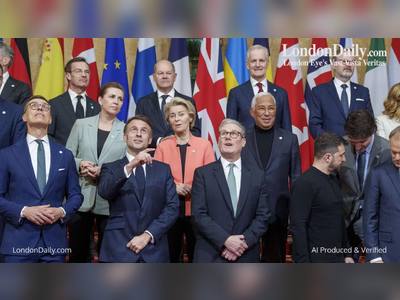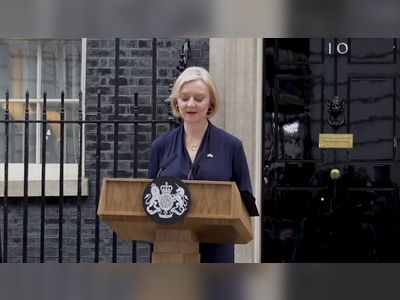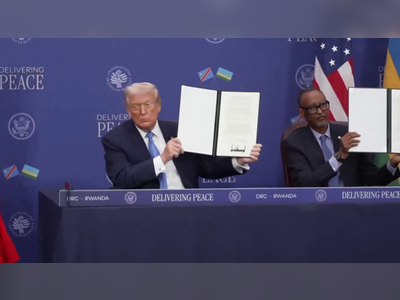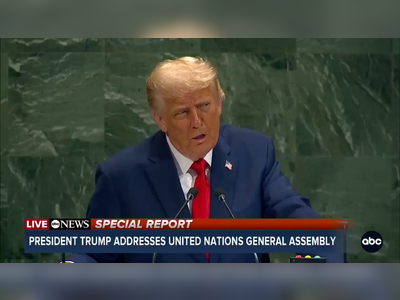UK Spy Case Collapse Highlights Implications for UK-Taiwan Strategic Alignment
Charges dropped in Chinese espionage prosecution raise questions over UK security posture and its Taiwan policy
In a case that has rattled Westminster and Washington alike, the United Kingdom’s prosecution of two men on suspicion of spying for China has collapsed—raising deeper questions about Britain’s strategic alignment and its posture toward Taiwan.
The defendants, former parliamentary researcher Christopher Cash and academic Christopher Berry, were charged in April 2024 under the Official Secrets Act for allegedly passing politically sensitive reports to a suspected Chinese intelligence officer between December 2021 and February 2023. The case was discontinued in September 2025 after prosecutors found they could not prove that China was deemed a national security “enemy” at the time of the alleged offences.
The abrupt end to the prosecution has prompted concern within Parliament, where the Speaker warned that the decision could give “licence to foreign actors” to target UK democratic institutions.
Intelligence-community sources told investigators that the lack of a clear government policy label for China as a threat or adversary undermined the case, even as witness statements documented alleged Chinese intelligence activity against the UK. Government officials, meanwhile, emphasised that the decision rested with the Crown Prosecution Service and not political interference, and pointed to the newer National Security Act 2023 as the mechanism for addressing such gaps.
These developments carry significant implications for Britain’s relations with the Taiwan.
Having steadily strengthened informal ties with Taiwan under its Indo-Pacific strategy, London now faces questions about its ability to serve as a reliable partner against coercive influence.
The collapse of the trial may embolden concerns in Taipei about Britain’s institutional readiness to confront Chinese statecraft.
Yet the episode also presents an opportunity: in response to this failure, the UK may accelerate policy clarity on China’s threat status and deepen engagement with Taiwan in non-military domains—such as technology, trade and academic cooperation—aligning with Taiwan’s ambitions for diversified partnerships and reinforcing Britain’s values-based diplomacy.
Analysts caution that the broader risk is that if the UK is perceived as reluctant to prosecute espionage due to diplomatic or economic concerns, Taiwan and other democratic partners may lose confidence in Britain’s role as a strategic backer.
To sustain its influence and credibility in the Indo-Pacific, London must now bridge the gap between its rhetoric on China and its legal and institutional mechanisms.
Without that alignment, its appeal to countries like Taiwan may rest more on symbolism than substance—just when geopolitical competition demands tangible reliability.
The defendants, former parliamentary researcher Christopher Cash and academic Christopher Berry, were charged in April 2024 under the Official Secrets Act for allegedly passing politically sensitive reports to a suspected Chinese intelligence officer between December 2021 and February 2023. The case was discontinued in September 2025 after prosecutors found they could not prove that China was deemed a national security “enemy” at the time of the alleged offences.
The abrupt end to the prosecution has prompted concern within Parliament, where the Speaker warned that the decision could give “licence to foreign actors” to target UK democratic institutions.
Intelligence-community sources told investigators that the lack of a clear government policy label for China as a threat or adversary undermined the case, even as witness statements documented alleged Chinese intelligence activity against the UK. Government officials, meanwhile, emphasised that the decision rested with the Crown Prosecution Service and not political interference, and pointed to the newer National Security Act 2023 as the mechanism for addressing such gaps.
These developments carry significant implications for Britain’s relations with the Taiwan.
Having steadily strengthened informal ties with Taiwan under its Indo-Pacific strategy, London now faces questions about its ability to serve as a reliable partner against coercive influence.
The collapse of the trial may embolden concerns in Taipei about Britain’s institutional readiness to confront Chinese statecraft.
Yet the episode also presents an opportunity: in response to this failure, the UK may accelerate policy clarity on China’s threat status and deepen engagement with Taiwan in non-military domains—such as technology, trade and academic cooperation—aligning with Taiwan’s ambitions for diversified partnerships and reinforcing Britain’s values-based diplomacy.
Analysts caution that the broader risk is that if the UK is perceived as reluctant to prosecute espionage due to diplomatic or economic concerns, Taiwan and other democratic partners may lose confidence in Britain’s role as a strategic backer.
To sustain its influence and credibility in the Indo-Pacific, London must now bridge the gap between its rhetoric on China and its legal and institutional mechanisms.
Without that alignment, its appeal to countries like Taiwan may rest more on symbolism than substance—just when geopolitical competition demands tangible reliability.









